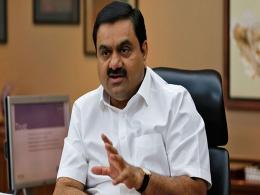The Reserve Bank of India (RBI) has maintained status quo on the interest rates and left the policy rates unchanged in its bimonthly monetary policy review on Tuesday, as widely anticipated. Given that this was already factored into the market expectations, the benchmark indices were flat in early trades.
As a result, the policy repo rate under the liquidity adjustment facility (LAF) remains unchanged at 8 per cent and the cash reserve ratio (CRR) of scheduled banks also stands unchanged at 4 per cent of net demand and time liability (NDTL). Consequently, the reverse repo rate under the LAF will remain unchanged at 7 per cent, and the marginal standing facility (MSF) rate and the bank rate at 9 per cent.
“At the current juncture, it is appropriate to hold the policy rate, while allowing the rate increases undertaken during September 2013-January 2014 to work their way through the economy. Furthermore, if inflation continues along the intended glide path, further policy tightening in the near term is not anticipated at this juncture,” as per the policy statement.
The RBI noted that sharper-than-expected disinflation in vegetable prices since December 2013 has enabled a sizable fall in headline inflation. But vegetable prices have entered their seasonal trough and further softening is unlikely. It also observed that consumer inflation excluding food and fuel has remained flat.
It added that there are risks to the central forecast of 8 per cent consumer inflation by January 2015 stemming from a less-than-normal monsoon due to possible El Nino effects; uncertainty on the setting of minimum support prices for agricultural commodities and the setting of other administered prices, especially of fuel, fertiliser and electricity; the outlook for fiscal policy; geo-political developments and their impact on international commodity prices.
RBI pointed out that there will also be a downward statistical pull on consumer inflation exerted by base effects of high inflation during June-November 2013. It is critical to look through any transient effects, including these base effects, which could temporarily soften headline inflation during 2014, it said.
RBI said its policy stance will be firmly focused on keeping the economy on a disinflationary glide path that is intended to hit 8 per cent consumer inflation by January 2015 and 6 per cent by January 2016.
“Contingent upon the desired inflation outcome, real GDP growth is projected to pick up from a little below 5 per cent in 2013-14 to a range of 5 to 6 per cent in 2014-15 albeit with downside risks to the central estimate of 5.5 per cent,” according to RBI.
It cautioned that the lead indicators do not point to any sustained revival in industry and services as yet, and the outlook for the agricultural sector is contingent upon the timely arrival and spread of the monsoon.
The central bank said real GDP growth continued to be modest in Q3 of 2013-14, with some strengthening of activity in services such as trade, hotels, transport and communication, and financing, real estate and business services.
“Despite some positive movement in more recent data, industrial activity continues to be a drag on the economy, with retrenchment in both consumption and investment demand reflected in the contraction of output of consumer durables as well as capital goods. In the quarters ahead, the boost provided by robust agricultural production in 2013 may wane,” it added.
In the meantime, the central bank decided to increase the liquidity provided under 7-day and 14-day term repos from 0.5 per cent of NDTL of the banking system to 0.75 per cent, and decrease the liquidity provided under overnight repos under the LAF from 0.5 per cent of bank-wise NDTL to 0.25 per cent with immediate effect.
This is in line with Urjit Patel Committee’s recommendation to de-emphasise overnight “guaranteed-access” windows for liquidity management and progressively conduct liquidity management through term repos.
The second bimonthly monetary policy statement is scheduled on June 3, 2014. This would also be the first monetary policy review after the general elections, whose results will be declared on May 16.
Meanwhile, the central bank said that it will consult with the Election Commission before announcing the names of the firms who have got in-principle approval for receiving new bank licences.
(Edited by Joby Puthuparampil Johnson)







